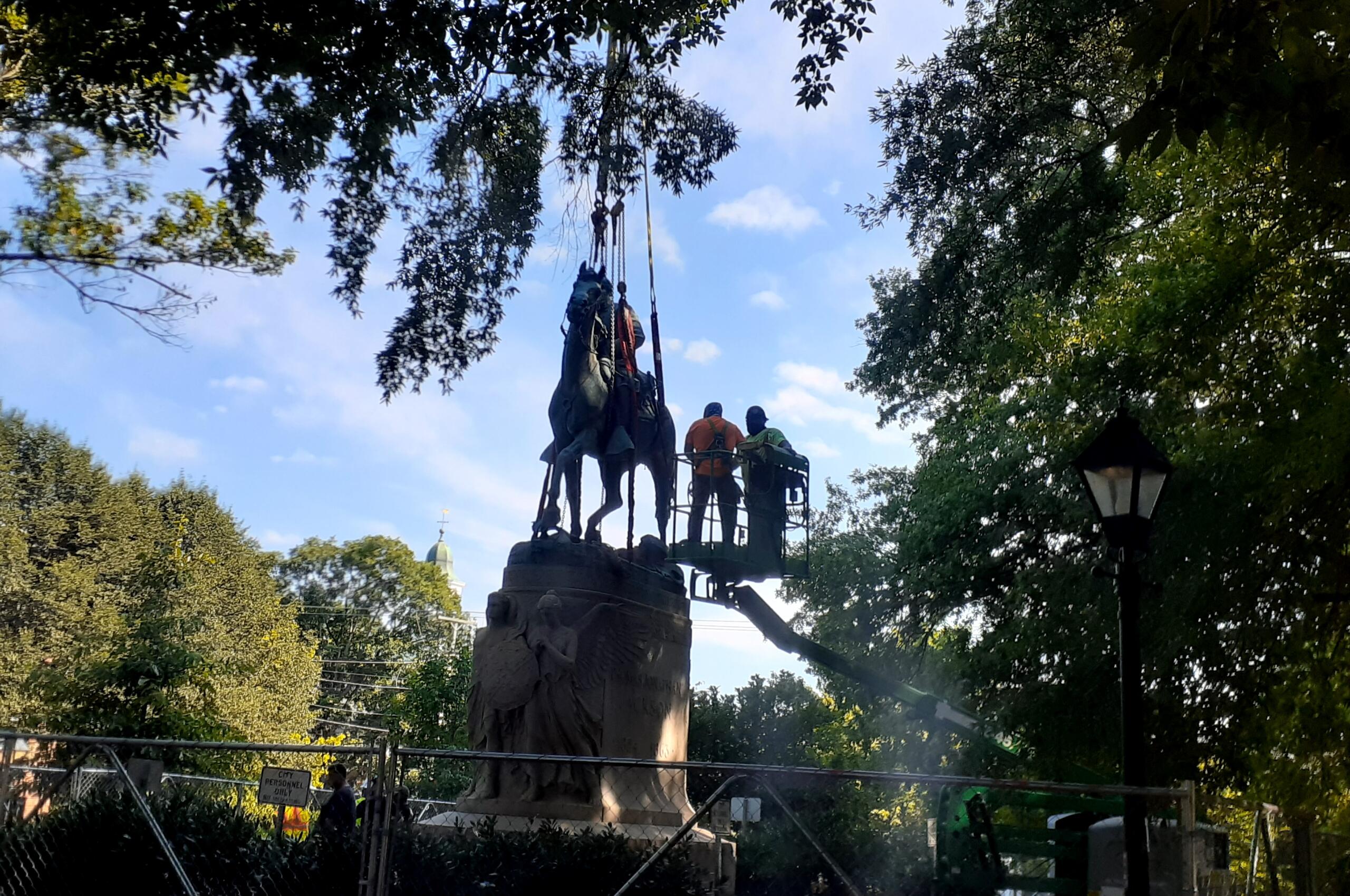CHARLOTTESVILLE, VA (CVILLE RIGHT NOW) – Charlottesville’s Stonewall Jackson statue is one of several decommissioned Confederate monuments that will be displayed in the Museum of Contemporary Art (MOCA), located in Los Angeles.
The Brick, a Los Angeles-based non-profit visual art space formerly known as LAXART, has been acquiring statues that pay homage to Civil War-era figures and had set its sights on both the Jackson and R.E. Lee statues removed by the city in 2021. The Lee statue was cut into pieces and melted down.
Stonewall Jackson has been in storage since.
“Juxtaposing decommissioned Confederate monuments with contemporary artworks, MONUMENTS invites audiences to reflect on the evolving meanings of these highly charged symbols and their implications in the present day,” according to a release from MOCA.
The confederate monuments, once simply a way to commemorate fallen soldiers, have taken on – over time – other meanings for some communities, many viewing them as celebrations of slavery and racism. Others have argued they are part of their heritage and have rallied to save the statues.
The issue reached a critical mass locally on Aug. 12, 2017, when a far-right rally, Unite The Right, held in Charlottesville turned violent. A counter protestor, who was struck by a motorist off the city’s Downtown Mall, and two Virginia State Police troopers whose helicopter crashed, died that day.
MONUMENTS opens on October 23. In addition to Charlottesville’s Stonewall Jackson statue, the exhibition includes works borrowed from private lenders and institutions such as the Jefferson School African American Heritage Center and the Black History Museum and Cultural Center of Virginia, as well municipalities including the cities of Baltimore, Boston, Montgomery, New Orleans, and Pittsburgh. The selection of monuments comes from a group of nearly 200 that have been taken down in recent years. Their conditions range from pristine to heavily vandalized.
Many Confederate monuments still stand today.
MONUMENTS will be accompanied by a scholarly publication and a robust slate of public and educational programming. It will run from October 23, 2025 to May 24, 2026.




